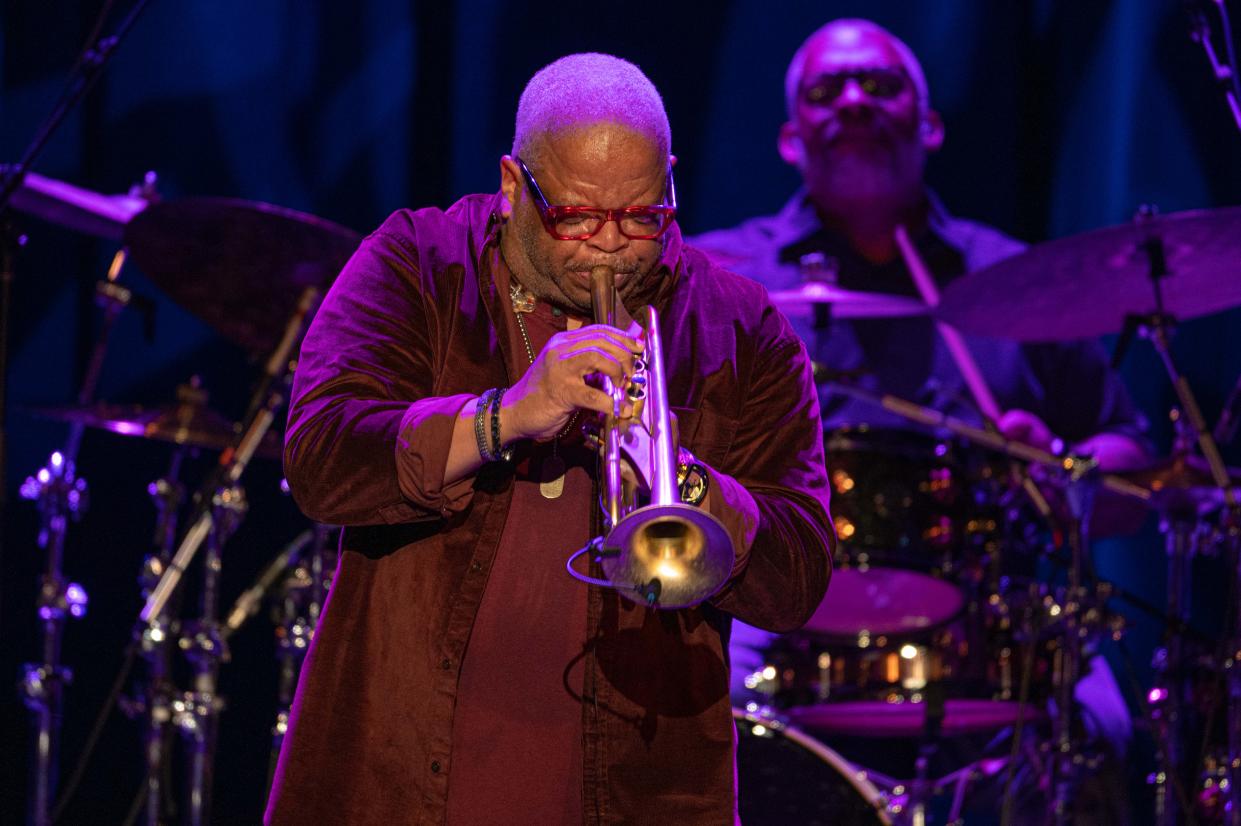Notes and tones: NEA Jazz Masters concert honors the best in jazz

Saturday, April 13 marks the 43rd National Endowment for the Arts Jazz Masters celebration.
The event arrives in the form of short video presentations and remarks about and from the recipients, interspersed with a tribute concert consisting of multiple groups sharing the stage — often including the current year’s recipients, along with a selection of previous years’ honorees and other musicians.
I have attended several NEA Jazz Masters tribute concerts, and can say each one has been different and memorable, filled with emotion, some humor and sarcasm mixed in at times and frequently, like jazz itself, a great deal of spontaneity and/or improvisation.
A decade ago in 2014, educator-musician Jamey Aebersold, multi-instrumentalist Anthony Braxton, bassist Richard Davis and pianist Keith Jarrett were the recipients. Braxton, whose music is predominantly of the so-called “free jazz” school, talked as his music sounds — totally spontaneously — doing so for 45 minutes; it’s fair to say he exhausted the audience, many of whom, like myself, didn’t quite understand his direction or point.
Braxton was followed by the always prickly Jarrett, who started his remarks while looking right at Braxton and saying he wouldn't talk for 45 minutes, which was greeted by audible laughter. Then the pianist talked for 45 minutes.
This particular night at Jazz at Lincoln Center’s Rose Theater became the impetus for the event’s producers, who were none-too-happy, to regain control; since then, the entire event has been confined to two hours.
Anyone can nominate a host location for the tribute concert. Besides JALC in New York, SFJAZZ and the Kennedy Center for Performing Arts in Washington D.C. — which hosts this year — have shared the honor of late. Columbia, anyone?
Because the NEA is a governmental agency, it is not allowed to charge for tickets, though you still have to secure tickets to attend. Regardless of venue, the event “sells out” quickly.
When the social distancing pandemic arrived, the NEA partnered with a variety of visual platforms to webcast the evening. They also partnered with National Public Radio, SiriusXM and other broadcast outlets so more people could catch the affair via radio. They've continued this policy and, in fact, expanded it — so much so that the broadcast can be heard in a number of different languages.
This Saturday, anyone can see and/or listen to the proceedings on one of the following outlets: the live webcast begins at 6:30 p.m. Missouri time at arts.gov (the NEA site) and kennedy-center.org. What’s more, if you can’t view/listen to the event in the present, an archive of the webcast will be available following the event at arts.gov.
The live webcast can also be seen on a slew of other outlets, and broadcasted via numerous radio options.
The NEA Jazz Masters program, initiated in 1982, now totals, with the four 2024 recipients — alto saxophonist Gary Bartz, trumpeter Terence Blanchard, author, critic, festival producer, presenter and radio host Willard Jenkins, and keyboardist Amina Claudine Myers — 173 awardees. This includes the Marsalis Family, the late pianist Ellis Marsalis and his sons, Branford, Wynton, Delfeayo and Jason, which the NEA considers a single entity. A complete year-by-year list can be found on the NEA Jazz Masters Fellows page.
Surprisingly, there haven’t been that many changes in the selection process, though for the first 22 years just three musicians received the honor annually. Beginning in 2004, a “jazz advocate,” not necessarily a musician, was added to the annual mix. This year’s advocate is Jenkins.
Beyond that, periodically there have been slight variances in recipient numbers. In 2010, eight people received the honor; from 2005-2007, there were seven recipients. On a number of occasions, there have been six awardees.
Still, by and large, the annual nominating and selection methods have remained quite similar. In the case of nominations, anyone can nominate anyone in the jazz field — however you can’t nominate yourself as a potential recipient. Nominations, comprised of a one-page letter and the nominee’s bio stating their case, are due in October for two calendar years later.
That means Bartz, Blanchard, Jenkins and Myers were nominated no later than October 2022. That being said, nominees remain “on the ballot” for five years. The current quartet received the news last June and, like others, they waited 10 months, give or take, to be officially “crowned” as a NEA Jazz Master. They are thought of, says the NEA press release, as “individuals who have made exceptional contributions to the advancement of jazz.” Oh, I almost forgot, a $25,000 check comes with the recognition.
Jon W. Poses is executive director of the “We Always Swing” Jazz Series. Reach him at [email protected].
This article originally appeared on Columbia Daily Tribune: Notes and tones: NEA Jazz Masters concert honors the best in jazz
